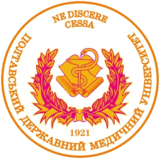Please use this identifier to cite or link to this item:
http://repository.pdmu.edu.ua/handle/123456789/16250| Title: | Teaching specialized languages as versions of the general language |
| Authors: | Athu, C. |
| Issue Date: | 2021 |
| Publisher: | Полтавський державний медичний університет |
| Citation: | Athu C. Teaching specialized languages as versions of the general language / C. Athu // Current Trends in the Study and Teaching of Foreign Languages : Proceedings of the 1st International Scientific and Practical Online Conference (Poltava, 04 June 2021). – Poltava : Astraya, 2021. – P. 17–20. |
| Abstract: | Special languages, the sub-divisions of the basic common language, represent the most efficient linguistic codes in a particular activity field and, combining the proper grammatical structures and specific lexical items. As per this perspective, a special language would, consequently, be an independent language and, due to this, it might be a challenge for us to detect an unmistakable boundary between the special and the common language. We consider that linguistic phenomena are to settle a boundary between the two aspects of language. The specialized vocabulary has been defined from different perspectives considering the degrees of specific knowledge of different functional styles. The number of specialized languages and functional styles reflects the diversity of concerns characteristic of each field of activity. Each functional style / language has specific features that individualize it, but also common features that create an area of interference. The functional languages styles are subordinated to the two special expressive variants, the artistic and the scientific (non-artistic). |
| Keywords: | common language specialized vocabulary linguistic codes functional styles |
| UDC: | 378.015.311.016:81'243 |
| URI: | http://repository.pdmu.edu.ua/handle/123456789/16250 |
| Appears in Collections: | Current Trends in the Study and Teaching of Foreign Languages |
Files in This Item:
| File | Description | Size | Format | |
|---|---|---|---|---|
| Athu_Teaching_specialized.pdf | 3,33 MB | Adobe PDF | View/Open |
Items in DSpace are protected by copyright, with all rights reserved, unless otherwise indicated.



